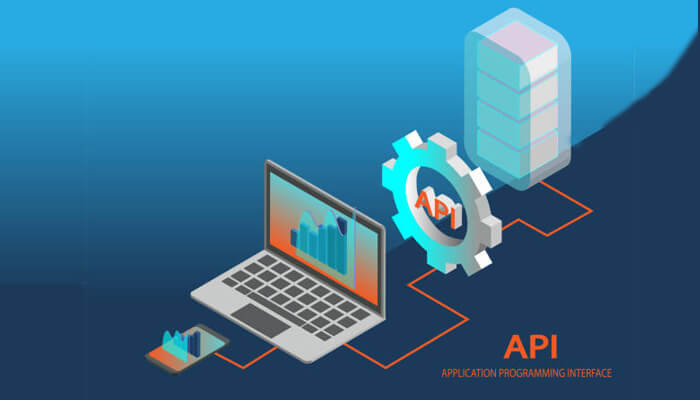You may want to adopt Cloud computing and are eager to know how your business can benefit from using API (Application Programming Interfaces)! APIs help bind together today’s digital ecosystems. It also helps improve efficiency, and bottom line and reduce costs considerably. Presently they drive business growth and act like a bridge between businesses and linking technology, leading to growth and innovation, forging partnerships, and monetizing data. API Development has enabled many companies to achieve tremendous growth like Salesforce, Ebay, etc.
About API Development
APIs adopted early on have helped companies to enhance overall operational efficiency, and create new products and channels. It also has enabled derive new value and revenue growth. It borrows data and functionality between applications. The developer using APIs can get access to any existing app code information via a key. The requested information is termed an ‘API call’. As API returns information, the same is referred to as ‘Response’. Using this information, the developer integrates received data in a known format.
Importance of APIs for businesses
1. Time saver: Businesses can save precious time as they do not have to develop a system right from scratch using the Internet of Things.
2. Faster innovation: They enable faster innovation.
3. Allow focus on core work: Businesses can rely upon APIs and focus better on core competency.
4. Reliable: Without API connection with Google Maps or messaging platforms like Twilio, companies like Uber might not have any existence.
The fact is that you tend to rely upon APIs even without your knowledge. Whether you check weather or traffic conditions, such apps rely heavily on APIs to pull vital data. There are 20,000+ public APIs currently available and more are getting developed.
How industry use APIs?
1. Publishing and Media:
Print in recent times has been declining steadily. This has prompted publishers to adopt API technology and related business analytics to meet the changing needs of their customers. Only publishers connected with creators and publishers to get crucial content using APIs. Custom APIs are developed by publishers such as ‘The New York Times’. APIs allow consumers to get access to publisher content on their mobile devices.
2. Banking and Finance:
Such institutions have switched to blockchain technology, digital payments, and Cloud computing. Using APIs, customers may now exchange currencies over digital portals. APIs have made cashless payments such as Chase QuickPay, Venmo, and Google Pay possible. Customers can now check bank balance using their smartphone, transfer money, view qualified loans and pay online their credit card bills. It also pinpoints theft and helps provide high-end fraud business analytics
3. Education:
By 2025, industry experts believe that the global e-learning market is likely to cross $325 billion. With e-learning becoming a reality in all levels educators have been relying upon APIs. Grading and testing are mostly done online these days. APIs help connect scores and answers with the central database. It also allows registering for classes as well as checking the availability of classes. One can track directories, student profiles, attendance rolls, and vital information. Teachers can now share lesson plans, and files and develop curriculums.
4. Retail and E-Commerce
The number of people shopping online has increased significantly in the last couple of years. The COVID-19 pandemic has only fostered its growth further. E-commerce sites as well as brick & mortar stores use APIs and the Internet of Things for tracking inventory. It helps Point of Sale (POS) terminals to accept payments especially from different sources like mobile devices, cards and cash. API development also possible to determine stock inventory and employee scheduling. It enables both companies and customers to track shipments.
Besides this, API Development has been helping various other sectors like the health sector, etc.



